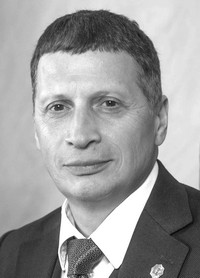Motor progress facilitating socio-psychological adaption model for preschoolers with musculoskeletal disorders and their families
Keywords:
children with musculoskeletal disorders, motor skills, self-serving skills, socio-psychological adaption.Abstract
Objective of the study was to test and analyze benefits of a new motor-progress-facilitating socio-psychological adaption model for the musculoskeletal-disorders-diagnosed preschoolers and their families.
Methods and structure of the study. We sampled for the motor-progress-facilitating socio-psychological adaption model testing experiment the musculoskeletal-disorders-diagnosed children and their family members (n=122+122). Progress of the sample was tested by seven survey methods, including two questionnaire surveys of our own design to rate the motor progress and self-serving skills. The experimental model was designed to advance the family socio-psychological adaption by three adaptive physical education courses for the children with the family counseling on every issue of the musculoskeletal-disorders-diagnosed child upbringing and training.
Results and conclusion. The motor-progress-facilitating socio-psychological adaption model was tested to improve the family socio-psychological adaption resource, with the group motor skills tested to grow by 2.19 points and self-serving skills to 9.65 points on average. The model with the test data and analyses is recommended for application by the adaptive physical education specialist community in the preschool education, rehabilitation and other relevant establishments.
References
Dmitriev M.G., Belov V.G., Parfenov Yu.A. Psychological and pedagogical diagnosis of delinquent behavior in difficult adolescents. (Parts 4-9). St. Petersburg: PONI publ., 2010. 316 p.
Levchenko I.Y., Prikhodko O.G. Technologies of education and upbringing of children with musculoskeletal disorders. Study guide for students sec. ed. institutions. M.: Akademiya publ., 2001. 192 p.
Leontyev D.A., Rasskazova E.I. Vitality test. M.: Smysl publ., 2006. 63 p.
Melnikova N.N. Diagnosis of socio-psychological adaptation of personality. Study guide. Chelyabinsk: SUrSU publ., 2004. 57 p.
Nemov R.S. Psikhologiya [Psychology]. textbook. for stud. higher ped. ed. institutions: in 3 books. 4th ed.. M.: VLADOS publ., 2001. Book. 3: Psychodiagnostics. Introduction to scientific psychological research with elements of mathematical statistics. 640 p.
Poletaeva (Dubrovina) N.A., Serova N.B. Pedagogical support of families as rehabilitation tool for preschoolers with cerebral palsy. Development of health saving technologies in modern society. Proc. international student scientific and practical conference (Yekaterinburg, June 3-4, 2015). Yekaterinburg: Ural. un-ty publ., 2015. pp.143-162.
Toporkova (Dubrovina) N.A. Monitoring o formation of motor skills in preschoolers with cerebral palsy. Adaptivnaya fizicheskaya kultura. Quarterly magazine. 2012. No. 3 (51). pp. 24–25.
Fetiskin N.P., Kozlov V.V., Manuylov G.M. Socio-psychological diagnostics of personality development and small groups. M.: Institute of Psychotherapy publ., 2002. 490 p.


